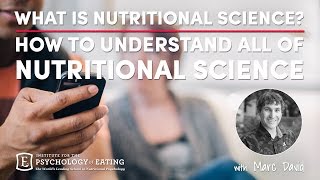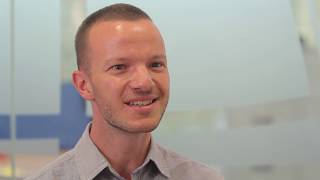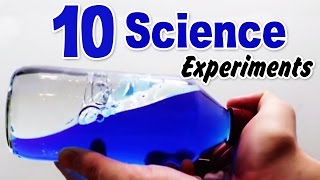Wednesday, 14 January, 2026г.
















Где искать: по сайтам Запорожской области, статьи, видео ролики
пример: покупка автомобиля в Запорожье
What is "Nutritional Science" - How to Understand All of "Nutritional Science" - Marc David
Read full transcript here: http://psychologyofeating.com/understand-nutritional-science-video/ In the field of nutrition, it seems like the only constant is change. At any given time, numerous dramatically different ideas about the “perfect” diet are competing for our attention, and each one seems to be backed up by a host of doctors or scientists with lots of letters after their names. How can the average person possibly hope to navigate the turbulent waters of nutritional science? How can we know who, if anyone, to trust? In this video, Marc David, Founder of the Institute for the Psychology of Eating, provides some very helpful “re-frames” on the chaotic but beautiful state of the cutting-edge field of nutrition, and offers a compass point that we can use to find our way through. If you have any "nutritional confusion" - or if you've ever wondered what dietary approach is the best one to follow, then this is the video for you. https://www.youtube.com/watch?v=VqXEJ0Kt6vs Keywords: What is Nutritional Science, nutritional science, nutrition science, https://www.facebook.com/IPEfanpage https://twitter.com/Psych_of_Eating https://plus.google.com/u/1/b/104465602283906481920/+Psychologyofeating/posts http://www.pinterest.com/eatingpsych/ https://www.linkedin.com/company/the-institute-for-the-psychology-of-eating https://www.youtube.com/user/MarcDavidIPE Want a sneak peek? Read part of the transcript below: Greetings friends, this is Marc David, founder of the Institute for the psychology of eating Today’s topic: How to Understand All of Nutritional Science That sounds like a pretty big promise doesn’t it? When I think about it, it really is. But I’ll do my best to make good on that promise. In five minutes or less, I’m going to outline some important and fundamental distinctions that will help you look at the science of nutrition, and all the information that you’re constantly exposed to – in a whole new way. You’ll have more insight, clarity, less confusion, and a greater sense of empowerment. In fact, you’ll probably have more understanding of the field of nutrition in the broadest sense than many experts in the field. Let’s get going. First, let’s take a big picture look at the field of nutrition: It’s the wild west It’s a young science – meaning nutrition is still developing, and we still have our training wheels on when it comes to truly understanding the depth of the nutritional process Experts disagree – and it’s okay For every PhD, there’s an equal and opposite PhD – meaning we will always always always find opposing viewpoints – even when you’re not looking for them No field in Science operates with universal agreement – that’s just the way it is. You need to build up your tolerance for disagreement Scientists can be very passionate, very religious, and very dogmatic. Scientists are just like you and me – they’re human beings. Be patient with them, love them, thank them for their hard work and their passion, and please don’t be intimidated by them! Nutrition is vastly influenced by personal preference – by fallible scientists. When I was in college in the 1970s I interned at Sloan-Kettering Cancer Institute in New York City. I was very fortunate to be working on the most famous floor in their research laboratories. Every scientist on this floor was a well-known name in cancer research. It was an exciting time for me, I learned a lot, and I had the opportunity to be up close and personal with how some great scientific minds truly work. There was one particular scientist who I would run errands for who especially took a liking to me. He was fascinated by all the strange foods that I would eat – I’m talking about sprouts on my salad, seaweed, odd looking organic dried fruit from the health food store, and my green drinks. Actually, he was less fascinated and more amused, and he truly thought I was a nutritional buffoon, and he had no hesitation to tell me so. He was convinced that food had little to no effect on your health, and that any scientist who was studying the role of nutrition in cancer was wasting valuable money and resources. What I love the most about him was that he would pontificate about all of this while drinking about seven or eight Diet Cokes every day. He was addicted. I could tell when he was coming down off of his Diet Coke. He’d get moody and irritable and forgetful. I’d have to go into the lobby and get another can of Diet Coke from the machine. Think about it for a moment – he had a personal relationship with food, and personal beliefs about it that dramatically impacted – and limited – his scientific approach. Read the rest of the transcript on our Institute for the Psychology of Eating site here:http://psychologyofeating.com/understand-nutritional-science-video/
Похожие видео
Мой аккаунт


 У вашего броузера проблема в совместимости с HTML5
У вашего броузера проблема в совместимости с HTML5


